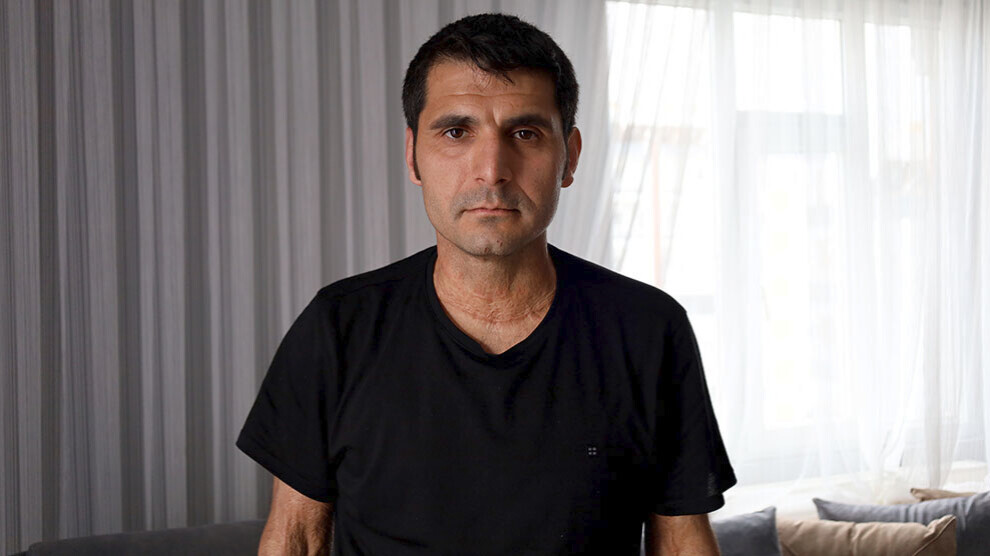Conditions in Turkish prisons are becoming increasingly heavier
Conditions in Turkish prisons are becoming increasingly dramatic. Prisoners fall ill because of the prison conditions and die in prison because they are refused release.
Conditions in Turkish prisons are becoming increasingly dramatic. Prisoners fall ill because of the prison conditions and die in prison because they are refused release.

Conditions in Turkish prisons have deteriorated rapidly, particularly in recent years under the AKP-MHP government. Starting with the isolation of the Kurdish representative Abdullah Öcalan on the prison island of Imrali, a different concept of repression, psychological terror and physical torture was extended to all prisons in Turkey and North Kurdistan. This became particularly clear after the prison reform pushed through by the AKP-MHP regime in March 2020. Political prisoners are particularly affected by this law, as they are meant to be broken by any means necessary.
A year after the reform, the Execution and Evaluation Committee (IGK) was set up in the prisons, which systematically prevents the release of political prisoners, even after they have served their sentences.
The release becomes arbitrary and depends on whether the prisoners show “real remorse”, according to the authorities..
Ferit Orak is one of those prisoners. He was due to be released on December 16, 2022 after serving 14 years in prison. However, his release was prevented twice by the IGK until he was finally released on 16 June. The Mesopotamia Agency news agency interviewed Orak about the conditions of detention.
An extra year and a half with no prospect of release
Orak said that in the past few years alone, more than 20 people have not been released in Bolu's F-type prison because of the IGC. Only two prisoners were ever released. He said: “The release of the prisoners is arbitrarily postponed by three to six months. Why aren't these people released? They are not even informed of the reasons. When the release day comes, a paper is thrown through the door, that's all. There used to be justifications, but now even that isn't necessary. In Bolu prison, this has become another form of torture for the prisoners, as the release is simply revoked at random. One example is that of Deniz Güzel, who has already been in prison for an extra year and a half. And as if that weren't enough, sentences are given for 'breaking the camera', 'resisting prison staff', 'not standing up at roll call' or 'failing to remove the rubbish'.”
"The prisoners shall be killed"
Referring to the situation of seriously ill prisoners Muzaffer Alkış, Levent Cin and Cemal Tarhan, Orak said: “Alkış and Tarhan were taken to Istanbul Forensic Medical Institute. They are between 70 and 80 years old and can no longer eat and walk independently. Despite all their health problems, they were certified as capable of staying in prison. The last time I saw Cemal Tarhan, he was walking down the corridor, supported by friends. The judiciary and the prison administration want to kill him in prison. Ill prisoners are comrades who have been in prison for more than 30 years. It is being said quite frankly that they will only come out of prison in a coffin."
Ill prisoners are denied treatment
Pointing out that in Bolu prison alone three prisoners had died within a year, Orak said: “Mehmet Emin Çelebi had cancer and when he was dying he was sent to Ankara. He died two or three days later. There are other seriously ill prisoners, like Hayati Kaytan and Civan Boltan.
Boltan lacks one arm and one eye and is unable to meet his basic needs on his own. When we reported on his situation, we were told: 'We know Civan Boltan, we know what happened to him, we don't treat him.' Hayati Kaytan has a tumor on his head, he has had multiple surgeries and his life is in danger."
The conditions make you ill
Noting the suspicious increase in infectious diseases in prison, Orak added: “The tap water is cloudy most of the time. Animal faeces, insects and worms can be found in the food. If you ask about opposition media, they say: 'You are against Islam.' There are no channels except A Haber, ATV, TRT, CNN Turk. Books are taken away from us. According to prison rules, you can't keep more than three books. Letters and books in Kurdish are not handed over for months, sometimes for years. Books donated to us by bookstores are not accepted and we are told to buy them with our own money.”